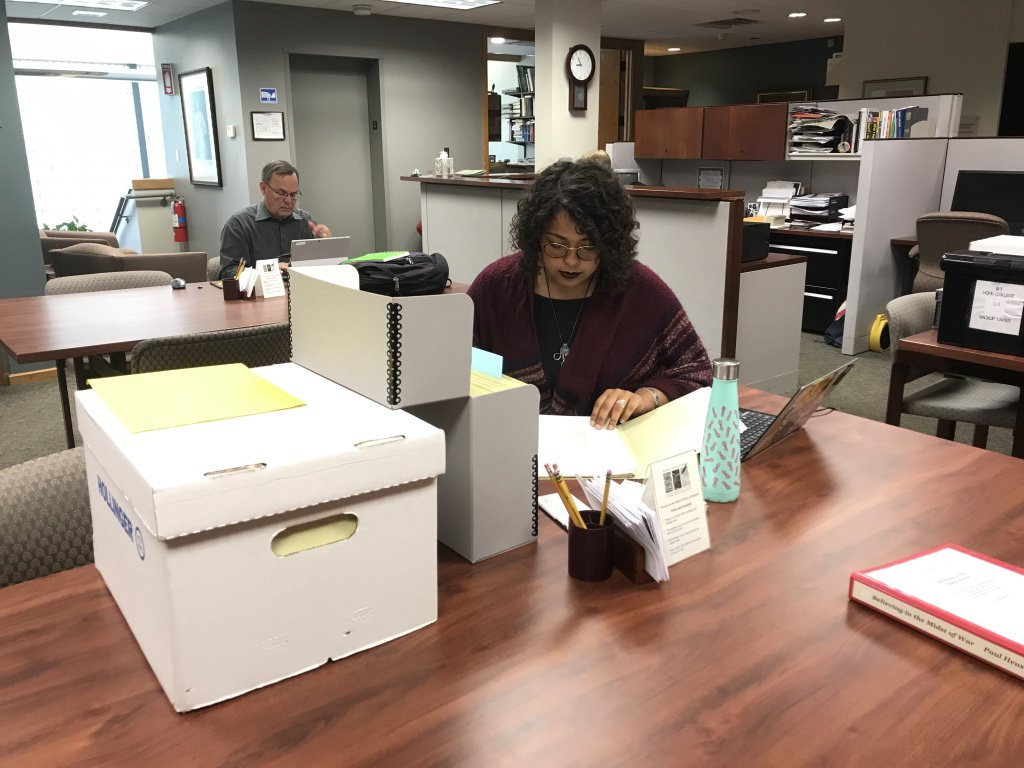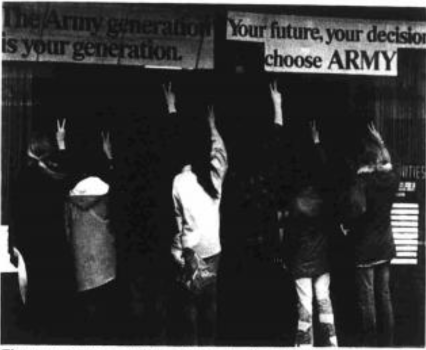
While doing research this summer as part of Mellon Grand Challenges Grant on “Imagining Peace,” I have come to appreciate protesting in a historical context. My partner, Olivia Brickley, and I researched in the Joint Archives of Holland, and we found amazing articles in The Anchor about the Vietnam war and Hope students’ reactions to it. Students wrote articles about the draft, the Kent State massacre, Hope student participation in a protest in Washington D.C., and peace protests on campus. According to one article in The Anchor by Paul Goodman, some Hope students were radicalized to the point where they fought for justice by burning their draft cards. Another Anchor article described how, in 1971, students from Hope College took part in a massive protest for peace in Washington D.C. These students were protesting not only the draft, but also the killing of students at Kent State and America’s involvement in the war in Cambodia.
When the Kent State massacre occurred on May 4, 1970, Tom Donia wrote an article in The Anchor about the events that unfolded. In this incident, four students were killed and nine wounded by national guardsmen because they were protesting to end the war in Vietnam. This massacre led Hope students to protest for peace in Cambodia, Vietnam, and America. Donia interviewed James Stills, a Hope College student, who spoke in the Pine Grove against the war and the deaths of the four Kent State students: “For too long students have hidden in a shell in order to ‘do their own thing,’” Stills said. He continued, “If we are ever to do anything for our country, the time is now. What others have died to start we must live to see finished, and that is a change.” Stills believed that the younger generation must end what has been started by protesting for peace and justice for the lives lost in Cambodia and at home in America.
Hope graduate Glen Pontier (‘68) resisted the draft, and protested the war during his resulting imprisonment. The Anchor reporter, Mary Houting, wrote an article explaining that Pontier was imprisoned at the Federal Correctional Institution in Danbury, Connecticut, for avoiding the draft. During his imprisonment, he fasted for peace with 11 other inmates, and they became known as the Danbury 11. They began water fasting on August 6, 1972, to protest the American atrocities in Indochina. Pontier stated that they would stop fasting once America stopped committing mass genocide in Vietnam. He shared his thoughts with with Houting about the draft system, saying that “there is little fair about a system which chooses some men to die and others to live, while causing all to exist in a state of uncertainty until their fate is decided.”

Many Hope students who protested focused on stopping the draft. In The Anchor, George Arwady wrote an article in 1966 about John Cox, a Hope student (and later professor of English), who, with a group of nine other students, protested for peace during the Tulip Time parade. Cox and his colleagues interrupted the parade and marched for peace because they believed that both the draft and the war were unjust. In 1969, Tom Donia wrote an article in The Anchor about the Academic Affairs Board’s request to the President to cancel classes for a Vietnam Peace Moratorium, where students and faculty would discuss ways to end the war. These students spoke out against the war because they believed that the only way to end the war was through a peaceful negotiation. In 1973, some Hope students stampeded the draft center in Holland. The Anchor article titled, “Decry Killing: Hopeites Stage Protest,” explained that students set up their protest in front of the Army-Navy recruiting center on West Eighth Street. These students shut down the recruitment base and collected 250 signatures for their petition. Their petition read, “We the undersigned believe that God our Father has given man life. He has asked man to prosper and grow, and above all to have faith in Him. What God has given life, let no man destroy. Let neither the leaders of North Vietnam, the U.S., Thailand, South Vietnam, the Philippines, Australia, the People’s Republic of China, the U.S.S.R., New Zealand, or any other nation or person usurp the power of God.” These students believed that the war in Cambodia was killing God’s creation. Because of this, these students protested to end the war in order to save human life.
These protests all had one end goal: peace for a world in disarray. This research helped me to see that protesting can make a difference. Without protesting, we would not be able to advance or even be heard when things are going wrong. For instance, the Black Lives Matter movement was important for African Americans because they were getting their voices heard over the oppression that they have lived in for centuries. Feminists would not have been able to change the patriarchal world that we live in without protests. Thus, protesting helps the world because it is a way for other people to hear the voices of the oppressed, concerned, and angered souls.


Great insight into how Hope students responded during this time of turmoil in our history. It is interesting to see how students responded locally to national events. Good work!